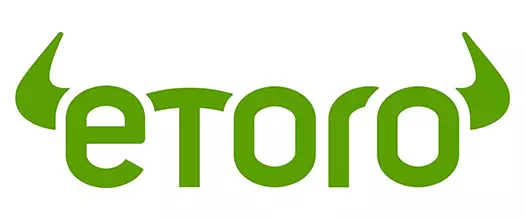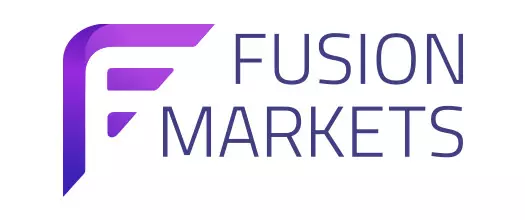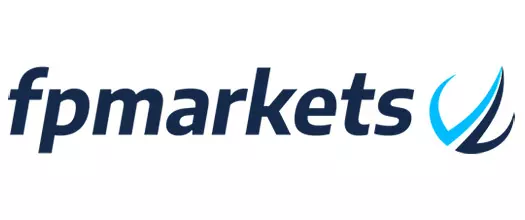- Jump to:
- Main features of the best Qatar Forex brokers
- Forex Legislation
- Financial Regulators
- Payment Methods
- Trading Software
- Mobile Trading
- FAQ
Our team of expert traders tested many regulated and trustworthy Forex brokers that accept traders from Qatar and compiled a top list of the best among them. Each broker operating in Qatar received a quality score based on several factors, including Trustpilot rating, regulation, fees and commissions, available trading platforms, customer service, and more.
Qatar is a tiny country located in the northeastern part of the Arabian Peninsula with a total population of 2.85 million and a land area of approximately 11,600 square kilometres. Despite its unimpressive size, Qatar is among the richest countries in this region. It has one of the world’s largest reserves of crude oil and natural gas.
 Plus500 USThis content applies only to Plus500 US and clients from the United States. Trading futures involves the risk of loss.
Plus500 USThis content applies only to Plus500 US and clients from the United States. Trading futures involves the risk of loss. eToro61% of retail investor accounts lose money
eToro61% of retail investor accounts lose money Fusion Markets74-89% of retail's CFD accounts lose money
Fusion Markets74-89% of retail's CFD accounts lose money FP Markets73.85% of retail investor accounts lose money
FP Markets73.85% of retail investor accounts lose money Global Prime74-89% of retail CFD accounts lose money
Global Prime74-89% of retail CFD accounts lose money Pepperstone75.5% of retail investor accounts lose money
Pepperstone75.5% of retail investor accounts lose money
Below you can find a comprehensive comparison table of Forex brokers for traders in Qatar. We rank them based on several factors including regulation, Islamic account availability, spreads and commissions, Trustpilot rating, trading instruments, trading platforms, deposit and withdrawal methods.
Our team has thoroughly evaluated all brokers listed below using TradingPedia’s exclusive methodology.
Main features of the best Qatar Forex brokers
- Brand
- Trading platforms
- Minimum deposit
- Regulations
- Trading instruments
- Spreads
- Leverage for Forex CFDs
- Leverage for Crypto CFDs
- Leverage for Indices CFDs
- Deposit methods
- Withdrawal Methods
- Commission per Lot
- Contact details
Qatar’s economic growth is driven primarily by the extraction and export of fossil fuels. Its biggest export partners include Japan, India, and South Korea. The government has repeatedly made efforts to diversify the local economy through the development of its industrial segment.
The country may be small in size, but this does not prevent it from being a major player in the retail Forex industry. The local population prospers and enjoys high standards of living, with an increasing number of residents looking to explore the foreign exchange markets.
Estimates suggest that as many as 300,000 locals trade Forex, cryptocurrencies, bonds, and stocks on the web. The national currency of Qatar is the Qatari riyal (QAR). It is issued by the Central Bank of Qatar, which pegs it against the US dollar at a fixed rate of 3.64 QAR for 1 USD. The peg was officially introduced in July 2001. It was even written into Qatari law by Hamad bin Khalifa Al Thani, who was the head of state at the time.
Many of the world’s best foreign brokerages accept customers from the country. Foreign exchange traders from Qatar should consider two main factors before they choose a broker – where it is regulated and whether it complies with the Sharia principles of investment.
Qatar forex legislation
Trading on the Forex markets is not prohibited by Qatari law. Furthermore, the country has adopted a rather lenient stance toward offshore brokers that operate on Qatari soil without local authorisation. In 2017, Qatar experienced a severe diplomatic crisis leading to economic sanctions by its neighbours, with Saudi Arabia in the lead.
This made it more difficult for local traders to make foreign currency transfers, causing problems for those who want to do business with overseas Forex brokerages. Traders from the country usually fund their live accounts in the local currency, the riyal, and then have to exchange it for the corresponding amounts in USD.
This happens with the help of the so-called introducing brokers who serve as representatives of the foreign-based firms. The alternative is to buy foreign currency to trade with from one of the designated exchange banks. Despite the difficult situation, many brokerages manage to bypass these hurdles with the help of agents who operate locally.
Some of the locals prefer to trade on the stock market because they feel unsure whether currency trading conforms with the Sharia principles of investing. They fear this is haram, or forbidden, under Islamic law. However, an increasing number of people decide to take the plunge and join offshore-regulated brokerages.
The best Forex brokers that enable Qataris to open live accounts are those regulated in other jurisdictions like the UK, Australia, and Cyprus. Such brokers offer full support for the Arabic language and uphold high security standards. They accommodate customers from Qatar with account types that are fully compliant with the principles of Islamic finance.
All financial operations in Qatar are based on Sharia law, which forms the foundation of Islamic economics. Sharia law relies on the principles of ethics and transparency. It strictly prohibits collecting and paying interest, known as riba in Arabic.
There are several reasons for this prohibition, starting with the fact that the Holy Qur’an instructs Muslims to stay away from riba entirely. Charging interest is considered highly unethical and unfair towards the person who pays riba.
Those who follow Islam share the belief that riba is intended as a means of exploiting the poor and increasing the wealth of those who are already rich. Money is seen only as a means of exchange and is devoid of intrinsic value. Therefore, it should be impossible for one to earn additional gains from money alone.
Thankfully, the best foreign-regulated brokerages provide Qatari customers with different types of Islamic accounts that are swap-free, i.e. traders are not charged or paid interest on their overnight positions.
Sharia-compliant brokerages that accept traders from Qatar must also carry out all monetary transactions to Muslim customers’ accounts without any delays. The same goes for settling the costs associated with the transactions.
As for security and fairness, all Qatar-friendly offshore brokers licensed in other top-tier jurisdictions comply with strict standards of safety to protect the money of their customers. For example, their regulators expect them to store clients’ funds in separate accounts from their operational capital, so that everyone gets their money back in the event of insolvency.
Many companies also cap the maximum leverage customers can use to prevent them from losing heartbreaking amounts of money. Negative balance protection is often in place to stop investors from losing more than they have initially deposited into their balance.
Qatar forex financial regulators
The financial sector in Qatar falls under the scrutiny of several regulatory bodies: the Central Bank of Qatar (CBQ), the Qatar Financial Markets Authority (QFMA) and the QFC Regulatory Authority (QFCRA).
Towards the end of 2019, the QFCRA announced that it prohibited companies from facilitating the provision and exchange of cryptocurrency assets in the country. The measure was adopted in an attempt to battle money laundering and the financing of terrorism.
All three regulatory bodies are headquartered in the Qatari capital of Doha. These entities are responsible for the oversight of Qatari brokerage firms, banking institutions, insurance and stock market companies. They also supervise hedge funds and investment companies that operate within the country.
Where foreign exchange brokers are concerned, the best offshore Forex companies that service Qatari customers are licensed and scrutinised by top-tier industry regulators from other countries. The prime examples include the UK Financial Conduct Authority (FCA), the Cyprus Securities and Exchange Commission (CySEC), the Australian Securities and Investments Commission (ASIC), and the Cayman Islands Monetary Authority (CIMA).
Brokerage firms licensed in these jurisdictions offer favourable trading conditions to their Qatari customers. They take all the necessary precautions to safeguard clients and their money. This usually happens through the adoption of policies for negative balance protection, funds segregation, and leverage caps. To our knowledge, there are no foreign exchange brokerages based in the country. Locals who trade at offshore-regulated websites are in no way hindered by the Qatari authorities.
Qatar forex payment methods
It is essential for Qatari Forex traders to join brokers that facilitate quick and hassle-free deposits and withdrawals if they want to enjoy a seamless trading experience. Offshore brokerage firms that service the Qatari market support several widespread payment methods, including the bank wire transfer.
This is a universal solution. It works across most trading platforms that accept registrations from the country. It is worth noting that international bank transfers require more processing time. Qatari customers who opt for this method may have to wait several business days until the deposited funds appear in their balance.
Qatar trading websites also allow payments made with standard credit or debit cards. Residents of the country commonly use cards by the brands American Express, Visa, MasterCard, Discover, and Maestro, all of which are readily available at Qatar-friendly brokers.
Another alternative for Qatari traders is to use an e-wallet payment system, with some of the most widely available options being Skrill, WebMoney, PayPal, Perfect Money, and Neteller. These are accepted by a large number of Qatar-friendly brokers. Many traders from the local market favour digital wallets because they facilitate fast and cost-effective payments.
As for the minimum amount Qataris can transfer to their live accounts, it is broker-specific. The amount can also vary according to the banking solution one uses. Whether the respective customer has verified their live account also plays a role.
Deposits via most methods are usually carried out at no extra cost for traders, but withdrawals may be charged additionally by some brokers. Withdrawals often require several business days to process, provided the broker has received all the necessary documentation from the trader. Another thing to bear in mind is that withdrawals are normally handled via the same payment method the customer originally used for deposits.
Popular trading software in Qatar
Qatari traders should take the time to carefully evaluate their needs before they choose a brokerage. Prior to making your pick, you should consider your previous experience on the Forex markets. For instance, if you have already used the services of brokers that utilise major trading platforms like MetaTrader 4, MetaTrader 5 or cTrader, you would probably be better off registering with a company that implements the trading software you are already familiar with.
Indeed, the majority of Qatar-friendly brokers work with the three platforms we mentioned above. This is no coincidence, since these are commonly regarded as the best in the trading world. Both MetaTrader 4 and MetaTrader 5 are highly flexible when it comes to device compatibility.
The platforms can be installed on desktop computers that run on Windows, Mac, and even Linux. Both have mobile versions for iOS and Android and feature a broad range of functionalities, including different timeframes, automated trading, technical indicators, graphical objects, and customisable charts. Forex traders from Qatar are recommended to go for MetaTrader 4 because this platform has been designed specifically for trading the foreign exchange markets.
More advanced traders from the country looking for portfolio diversification can pick MetaTrader 5 because it supports a greater number of financial products, including options and futures. It also allows for better analysis thanks to the Depth of Market feature, which enables traders to see the latest tick trends.
Each platform supports single-click trading. Qatari traders also have the option to execute trades in their internet browsers. Most brokers offer the MT4 and MT5 WebTrader in parallel with the downloadable versions.
Other platforms Qataris might encounter are cTrader, NinjaTrader, ActTrader, and ZuluTrade, but these enjoy significantly less popularity when compared to MT4 and MT5. NinjaTrader, in particular, is considered a fitting alternative for those who prefer to trade in futures and insist on having a large number of tools for technical analysis at their disposal.
Mobile trading in Qatar
The smartphone market in Qatar has registered rapid growth in recent years, reaching penetration of approximately 75%. Residents aged 15 to 34 generate the highest levels of smartphone usage in the country.
The popularity of Forex trading apps is also on the rise in Qatar, with an increasing number of local traders shifting from desktop computers to smartphones and tablets. Brokers commonly report an increase in trading volume through mobile applications, with some of these companies having a strong presence on the Qatari market.
There are many benefits of taking one’s trading activities on the go. The apps of Qatar-friendly brokers facilitate the placement of orders while at the same time providing traders with access to real-time quotes and accurate live-streamed market data on currency pairs, shares, indices, and commodities, among other products.
Qatari customers can conveniently review their existing portfolios, track their performance, and monitor their positions regardless of their location. This way, they will never miss out on any lucrative investment opportunities. Qatar customers can fund their account balance or send withdrawal requests instantly.
The broad availability of tools for charting and in-depth market analysis can greatly improve the success rates of Qatar mobile traders. Some apps are so sophisticated that they even offer simulators that enable users to evaluate past market environments via backtesting. Qatari traders also get the chance to test new strategies on the fly.
Those who are relatively new to the Forex markets can brush up their skills and knowledge by opening free demo accounts. The apps of the best brokers that service Qatar customers are available in Arabic. This eliminates the language barrier that could otherwise hinder the performance of Qatari traders who are not fluent in foreign languages.









